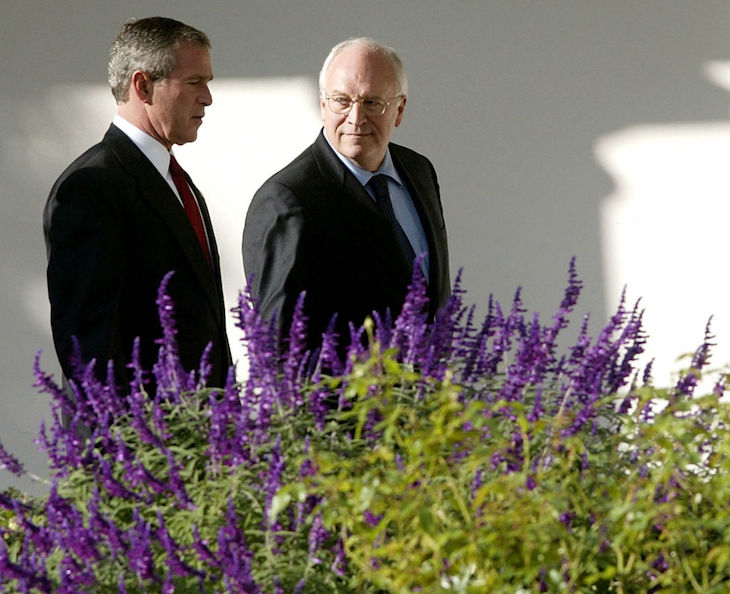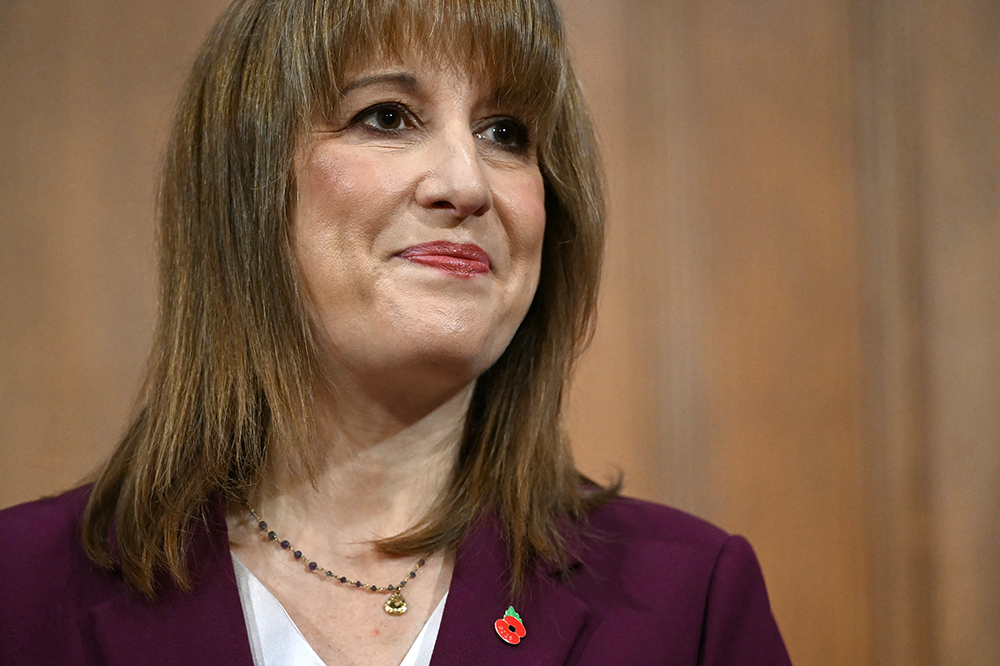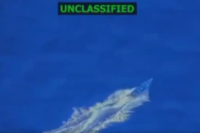Long before Donald Trump arrived on the political scene to warp all international diplomacy and finance around him, there were US administrations creating greater calamities. George W Bush’s first government, from 2001 to 2005, was one of them. Dubya wasn’t a sleazy grifter or a weapons grade narcissist. But on his watch the United States did, with its war on Iraq, bring chaos to the Middle East and spark an explosion of Islamic terrorism for which we’re still paying the price.
Cheney was a man devoid of empathy, who used US superpower to slay hundreds of thousands of people and smash things
Of course, the Iraq invasion wasn’t his idea. The ‘brains’ behind the disaster were the neocons. And their leader, America’s torturer-in-chief and the real power behind the Oval Office desk was vice president Dick Cheney, who died on Monday at the age of 84.
We’re told Cheney passed away peacefully with his family around him. The same can’t be said for the quarter of a million or more civilians who died violently in the chaos that followed his 2003 invasion of Iraq. Cheney constantly justified this obscenity by the presence of weapons of mass destruction that we now know (and he knew then) never existed. He was backed by the government of Tony Blair (for which you’ll forgive people in the Middle East their scepticism as Trump touts the former Labour premier as a member of the ‘Board of Peace’ to oversee Gaza’s reconstruction).
Cheney preferred to operate from behind the scenes as part of, or in cahoots with, upper echelons of Republican administrations, from those of Gerald Ford to Bush junior, plotting wars, surveillance techniques on his own people or simply how to cash in on lucrative federal contracts.
When he spoke publicly, however, the hint of a scowl was never far from his face. He was always right and resented having to justify himself.
America’s invasion of Afghanistan in 2001 to root out al-Qaeda and Osama Bin Laden was probably inevitable after 9/11. But for the next display of braggadocio, Cheney directed the Pentagon’s arsenal at Saddam Hussein, until that point, a US ally – even though Bin Laden’s al-Qaeda was a terror group effectively run by Saudis and based in Afghanistan, with no links to Baghdad.
The neocons’ plotted their invasion of Iraq with no thought for the prevailing cultural, historical, or political situation there. But it was good business for arms manufacturers and made some private security firms very rich.
Saddam, monster though he was, would not or could not have killed 280,000 of his own people in the best – or worst – years of his life. Neighbouring Syria was reduced to a charnel house by the terror groups nurtured during America’s great misadventure.
Thousands of Americans – and hundreds of Britons – died for no good reason. As US defence expert William Alberque once said to me: ‘We spent a trillion dollars…We created a vacuum for organisations like Isis to grow in. It is one of the biggest own goals in world history.’
Cheney, backed by Donald Rumsfeld and other hawks, also exploited the fear created by 9/11 to encourage George W Bush to sanction ‘enhanced interrogation techniques’ – that’s torture to you or me – to extract information at any cost.
The US chose Guantanamo Bay as a legal no-man’s land, where suspended Taliban and al Qaeda members could be detained and tortured, with their human rights annulled.
Cheney was asked many years later about the revelation that a quarter of the detainees were innocent, including one who was tortured to death. He sneered that he has ‘no problem as long as we achieve our objective’.
Were the objectives to have al-Qaeda mutate into Isis? To empower the horrible theocracy in Tehran, or perhaps to make billions for US defence firms, arms manufacturers and construct companies like KBR (This former subsidiary of Halliburton, once run by Cheney, won over $39 billion (£30 billion) in federal contracts related to the Iraq war between 2003 to 2013)?
If so, mission accomplished.
Making use of White House contacts, Cheney himself pocketed $44 million (£33 million) while at Halliburton, in between stints in government.
Trump might be grifting big time from digital currency and making multibillion deals with any number of unsavoury Middle Eastern regimes – and even looking to cash in on the rebuilding of Gaza. But he hasn’t (yet) started any wars (although Washington’s belligerence towards Venezuela is cause for concern), and he has made some (vainglorious) attempts–- of varying effectiveness – to end them.
We can’t say how Trump’s prevarication over Russia and his incoherence over China and Taiwan will pan out. He is justified, however, in taking pot shots at the ‘neocons’ and ‘interventionists’ – including the supposedly saintly Barack Obama, who in 2013, did away with the name ‘War on Terror’ even as he ratcheted up the conflict, with a ten-fold increase in the number of drone strikes, which killed hundreds more civilians.
Towards the end of his career, Cheney began assailing Trump over his abuse of democracy. It should have occurred to him that Trump was first elected on the promise of extracting America from the ‘endless’ foreign wars that Cheney had created.
At least Obama had the shame to blush – and Trump appears to have the rudimentary workings of a moral compass that tells him mass war deaths are best avoided.
Cheney, on the other hand, appeared chuffed by his nickname Darth Vader – as if being dubbed a psychotic, superpowered mass killer was a badge of honour. The epithet was horribly accurate. Cheney was a man devoid of empathy, who used US superpower to slay hundreds of thousands and smash things, sometimes simply for the sake of it.
Corrupt, mendacious, and pitiless, vice president Dick Cheney repelled Americans, and left office with a wretched 13 per cent approval rating. But those really paying the price for his life’s work, the people of Iraq and Syria, won’t have time to toast his demise or even give it a second thought.
Most Iraqis alive today were born after the 2003 invasion; their preoccupation is earning a living or simply surviving in a country even now mired in the corruption, poverty and sectarian violence that Cheney helped create.







Comments